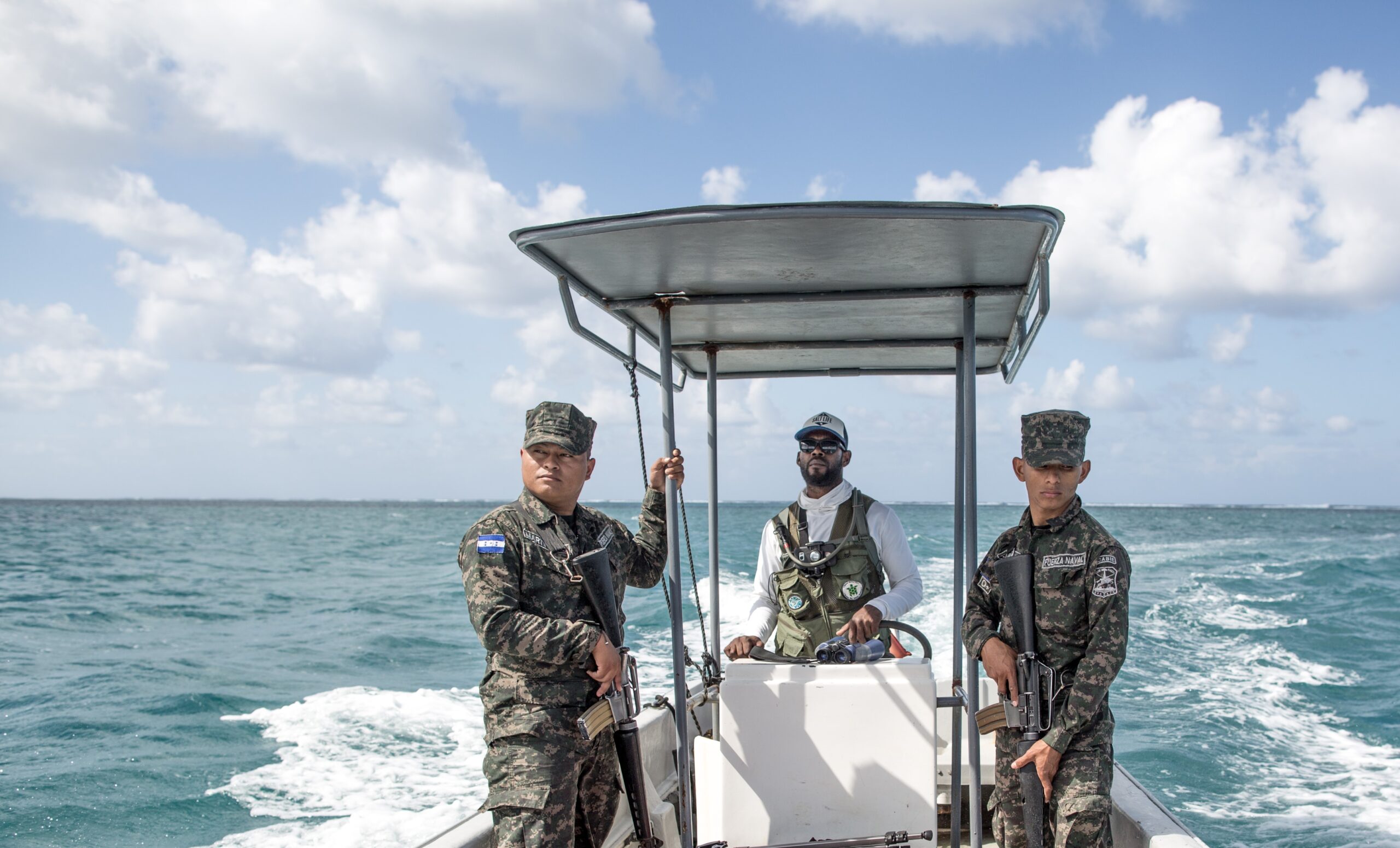Nowadays there’s an app for everything. There’s even one that can help protect coral reefs! The app is called SMART and it’s a tool being used by conservationists around the world to protect wildlife and its natural habitats.
Thanks to our local partners, dedicated patrol rangers, and your generous support, we are expanding access to this technology and using it to address illegal fishing in the Western Caribbean and protect the region’s coral reefs.
How Does SMART Address Illegal Fishing?
SMART improves the management of marine protected areas by allowing patrol rangers to track activities and record observations in one simple data system. With just the click of a button, we can now view valuable data that helps on-the-ground teams be proactive, strategic, and efficient when guarding marine protected areas.
By providing training and access to the tool, our local partners like the Roatan Marine Park (RMP) and the Bay Islands Conservation Association have improved their patrolling programs and can better protect waters that suffer from illegal fishing.
“We can get precise information and immediately download the reports that we need,” says Francis Leán, the executive director for the RMP. According to Leán, her team no longer relies on estimations and can now accurately analyze the number of illegal fishing incidents and species confiscated, in addition to the mileage covered and amount of fuel used by patrol rangers.
“By using this technology, we understand all the components involved in running a successful patrolling program,” says Pamela Ortega, CORAL’s program manager. “It helps make informed decisions and it can advise other communities or groups in the industry.”
Why Do Healthy Fish Populations Matter for Coral Reefs?
An effective patrol program is important because it protects healthy fish populations, which greatly contribute to coral reef health. Herbivorous fish, like parrotfish or surgeonfish, graze on the seaweed that grows near reefs. When you remove too many of these fish from the environment, algae can take over reef-building corals and the ecosystem can quickly collapse. Overfishing impacts coral reefs and the species that rely on them, in addition to many coastal communities who depend on reef fish as a source of income and food. That’s why we are so committed to our Sustainable Fisheries strategy which includes utilizing technology, implementing robust patrolling programs, and supporting local partners whose work directly impacts coral reef health.
In the upcoming year, we hope to expand the use of SMART and offer more technical expertise to patrolling programs in the Western Caribbean. Thanks to generous donations, we are able to help local communities and our partners reach these goals and protect the coral reefs we know and love. To learn more about our work in the region, check out our programs in the Western Caribbean.
